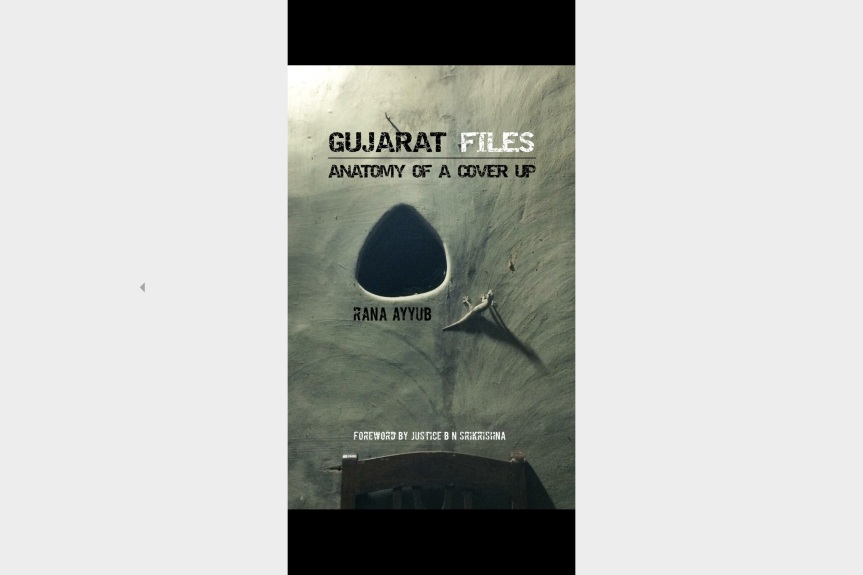Every-time that someone from the Trump coterie publishes a book I always wonder, when is India going to have that? When will we get the mouth-watering insider details on what would undoubtedly be very eyebrow (and hair) raising moments?
That should serve as a preamble to the dire lack of investigative journalism in the country. For those who remember, there was a brief moment of activity when Tehelka, an investigative newsletter was started sometime in the early 2000s. Of-course that went down the great Indian drain too, in an act of our powerful reverse-Midas touch, all that we touch, we turn to dust. After a series of powerful investigations, Tehelka succumbed to an over-dependence on sting-journalism, a kind of honey-trap based evidence collection, a means that stood on very shaky grounds with respect to privacy and manipulation. Not to mention, when you start shaking up the status quo in countries like India, you wake up monsters from the deep. Before they knew it, the magazine was fighting off allegations on its own ethics, including a sexual molestation case against the founder.
Nevertheless, much before all of that happened, a young Muslim woman journalist at Tehelka decided to take on a case that has probably defined her. I mention the qualifiers because you need to understand the context of what she did- a young woman, from a religious minority, an investigative journalist..in Gujarat a few years after the horrific communal riots (pogroms) of 2002. Add to this an additional context of where we are today as a country, and that should take Rana Ayyub’s bravery up a few notches as well.

Before I read this book, I knew of Rana Ayyub, I even followed her on various social media. However, I had never read the book that made her so well-known, which was why I decided to give it a read. Probably thanks to social media’s horrible incursions into the deep recesses of my brain, I can only read a chapter or so of a book in a day, and I need atleast 2 books to be read simultaneously. If I am not mistaken, I was probably juggling Rana’s book with Sophie’s World and a Henning Mankell crime, droll.
What struck me about the Gujarat Files was the litany of names from the past. It is now eighteen years since the riots, a lifetime really. The names that are mentioned in the book have reached the echelons of political career that were unthinkable back in 2002, or even when this book was being researched between 2002-2011. Ex-cops, right-hand men, men who never get their hands dirty, women who are doctors by day and rioteers by night, personalities whose deep clutch of power can only be insinuated at. There are political rivals whose deaths I had forgotten about, killed in strange incidents that scream deliberate obfuscation.
In short, a book that is a very important record of what happened, even if nobody seems to care about it now. It is hard to imagine that today there are young Indians who were born well after these events and who have no idea. This book is for their records, should they be so inclined. This book is to understand where some of the actors on the stage come from.
Which is not to say that I have no complaints! The editing is definitely problematic, and the text tends to read like a writer’s first attempt at heartfelt outpouring. What this book lacks is a great editor, someone who would have also considered the audience for the book- future generations with no context, possibly even non-Indian readers. The book therefore assumes a certain familiarity that only people following topical headlines of the day would have. I am obviously old enough to remember the strangely henna-red hair of DG Vanzara, but I doubt my young siblings would even know who he was.
Also, in an increasingly visual world, I would have loved to have seen photographs, Rana in her assumed identity of a high-caste Hindu girl Maithili Tyagi. Funnily I saw some photographs on her instagram, pictures of a young Rana in a safe house in Gujarat, many many years ago, when we were all young and idealistic.
Rana, as Maithili, pretends to be an NRI film-maker (Non-Resident Indian, the diaspora, most of whom have traditionally been quite happy being nationalistic but from afar). Thanks to her assumed identity and the ego-massaging bait of filming a heroic Gujarat, Rana gets access to an incredible number of key players from the Gujarat riots. Thanks to her purported religion and assurances of sharing similar sentiments, Rana is soon sharing meals with people who would have gagged (at the very least) at the thought of sharing plates with a Muslim.
There are moments when I was shaking my head at her..shall we call it chutzpah? I would have been caught, as they say, at hello. No, I’ll be honest, I would have been a shivering blubbering mess. It still defies imagination, and the best way I can explain this to a non-Indian reader is, imagine a young Jew girl, pretending to be a gentile sympathetic to Nazis, and interviewing members of the SS…right after Kristallnacht.
Would I recommend this book? A hundred percent, mostly for the record-keeping nature of its content. This is an important book from the perspective of having that one contrarian voice questioning the powers that be. The book is readily available in multiple Indian languages & English on Kindle (I must admit to using e-books for text-books and quick reads like these, it’s just economical..even though I do balk at falling into the hands of surveillance tech)

